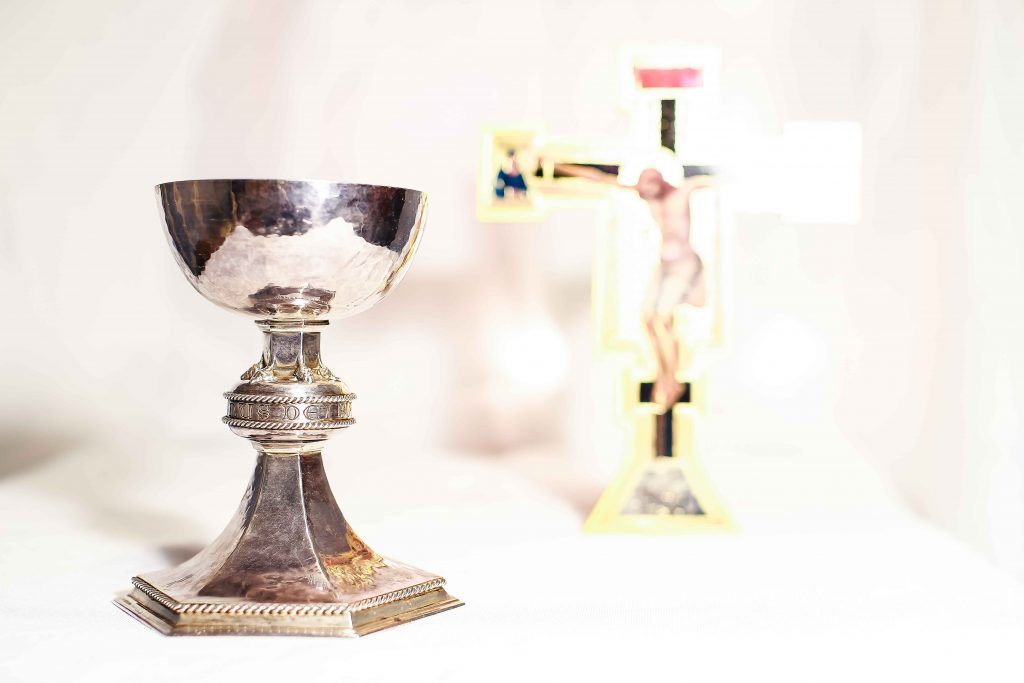The faith journey of the Catholic Church is one of deep privilege and profound connection to the teachings of Jesus Christ. We are raised in the church through the seven sacraments, instituted by Christ. These are visible rites seen as signs and channels of the grace of God to all those who receive them.
Starting with baptism, the rise of admission into the Church by the pouring of holy water onto the head, we venture onto the First Communion. That’s when we experience the body and blood of Christ in receiving the Eucharist at mass.
From there, the sacrament of Confirmation, confirming and strengthening Baptismal grace.
What is the sacrament of Confirmation?
Confirmation is the sacrament by which Catholics receive a special outpouring of the Holy Spirit. Through Confirmation, the Holy Spirit gives us the increased ability to practice the Catholic faith in every aspect of our lives and witness Christ and divine mercy in our daily life.
The effects of Confirmation are as follows:
- An increased portion of the gifts of the Holy Spirit: wisdom, knowledge, right judgment, understanding, courage, piety, and fear of the Lord
- A deepening and strengthening of the grace received at Baptism
- A more intimate relationship with Jesus Christ
- The ability to take a greater, more mature role in the Church’s mission of living the Christian faith daily
- A special mark, or character, on the soul that can never be erased
Each person’s ability to embrace these effects depends on his or her openness to the sacrament and willingness to accept it as God’s personal gift.
Who can receive Confirmation?
In the Catholic Church, Confirmation is usually administered to young people in their teens who are ready to take on a more adult role in the Church. These candidates for Confirmation, or confirmands, are usually baptized as infants and must now accept the Catholic faith as their own and make a commitment to live it out with God’s help.
Most confirmands participate in one or two years of preparation classes before receiving the sacrament. As part of that preparation, each confirmand chooses a ‘Confirmation name’ (usually that of a favorite saint), which indicates that they are ready to assume a new position in the community.
Adults joining the Catholic Church also receive the sacrament of Confirmation after baptism and a period of instruction. They, too, must freely accept the Catholic faith and commit to practicing it as part of their Christian life.
Recipients of Confirmation must choose a sponsor to provide them with prayerful support and guidance in his or her Christian life. Being a sponsor is a lifelong commitment. A sponsor takes on the role of a spiritual parent who brings the candidate to receive the sacrament to help them to fulfill his baptismal promises faithfully under the influence of the Holy Spirit.
Upon receiving the sacrament, parishes provide confirmation certificates to officially recognize a Christian’s taking this next pivotal step in their religious education.
Why are confirmation certificates important?
This may seem like a piece of stationery, but it wields greater power within the Church. Confirmation certificates are often requested by some churches and parishes in order to pursue other sacraments like matrimony, baptism, and even later serving as a Confirmation sponsor for another recipient.
The baptismal register serves as the primary record of one’s canonical status in the Church. The sacrament (whether Confirmation, Communion, Marriage or Holy Orders) is recorded in the register at the church in which the sacrament is celebrated. That parish is notified upon reception of other sacraments. Keeping record of these certificates serves to help in your religious journey for years to come.

